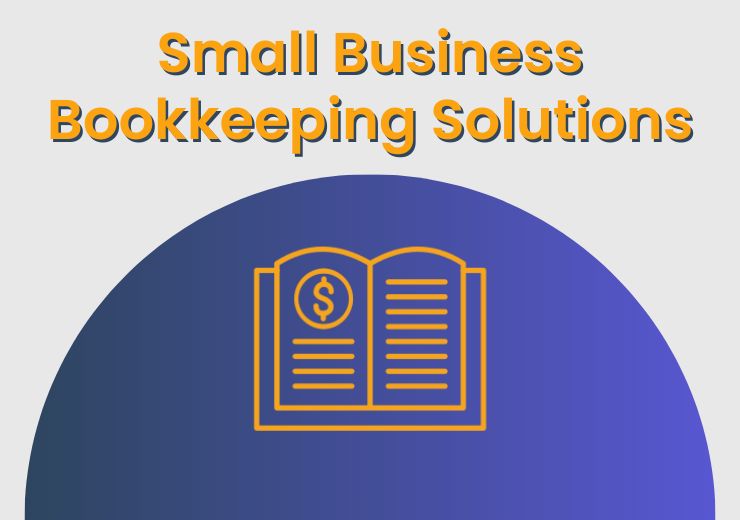Running a small business comes with its share of challenges, and one crucial aspect that often requires careful attention is bookkeeping. In this comprehensive guide, we’ll explore small business bookkeeping solutions that can help you navigate your finances with ease and efficiency.
Introduction
Why Bookkeeping is Crucial for Small Businesses
Bookkeeping is the backbone of any successful business, regardless of its size. It involves keeping accurate and up-to-date records of your financial transactions, providing insights into your business’s financial health.
Choosing the Right Bookkeeping Software
Features to Look for in Bookkeeping Software
When selecting bookkeeping software, it’s essential to consider features such as invoicing, expense tracking, and financial reporting. Popular tools like QuickBooks, Xero, and FreshBooks offer a range of features suitable for small businesses.
Comparison of Popular Bookkeeping Tools
Let’s compare these tools in terms of usability, pricing, and specific features to help you make an informed decision.
Setting Up Your Chart of Accounts
A well-organized chart of accounts is fundamental for effective bookkeeping. This section will guide you on setting up a chart tailored to your business needs.
Daily Bookkeeping Tasks for Small Businesses
Recording Sales and Expenses
Consistent recording of sales and expenses is essential for real-time financial insights. Discover practical tips to streamline this process.
Managing Cash Flow Effectively
Explore strategies to maintain a healthy cash flow, ensuring your business can meet its financial obligations promptly.
Importance of Reconciling Accounts Regularly
Regular reconciliation of accounts ensures that your financial records align with actual bank statements, minimizing errors and discrepancies.
Invoicing and Payment Tracking
Streamlining Invoicing Processes
Efficient invoicing is crucial for timely payments. Learn how to streamline your invoicing processes to improve cash flow.
Implementing Efficient Payment Tracking Systems
Effective payment tracking systems help you keep track of outstanding payments, reducing the risk of late or missed payments.
Budgeting Strategies for Small Businesses
Creating a Realistic Budget
Crafting a realistic budget is key to financial stability. We’ll guide you through the steps of creating a budget that aligns with your business goals.
Adapting Budgets to Changing Business Conditions
Learn how to adjust your budget to adapt to changing market conditions, ensuring your financial plan remains relevant.
Tax Planning and Compliance
Understanding Small Business Tax Deductions
Maximize your tax deductions by understanding the eligible expenses for small businesses.
Staying Compliant with Tax Regulations
Stay on the right side of the law by staying informed about the latest tax regulations and compliance requirements.
Integrating Technology for Seamless Bookkeeping
Cloud-Based Bookkeeping Solutions
Discover the benefits of cloud-based bookkeeping solutions, offering accessibility and collaboration for small businesses.
Automation in Bookkeeping Processes
Automation can significantly reduce manual workload. Explore ways to automate repetitive bookkeeping tasks.
Hiring a Professional Bookkeeper vs. DIY Bookkeeping
Pros and Cons of Hiring a Professional
Evaluate the advantages and disadvantages of hiring a professional bookkeeper for your small business.
DIY Bookkeeping Tips for Small Business Owners
If you choose the DIY route, follow these practical tips to manage your bookkeeping efficiently.
Common Bookkeeping Mistakes to Avoid
Overlooking Petty Cash Transactions
Avoid common pitfalls, such as neglecting petty cash transactions, to maintain accurate financial records.
Neglecting Bank Reconciliations
Regularly reconcile your bank statements to identify discrepancies promptly.
Tips for Efficient Time Management in Bookkeeping
Explore time-saving tips to manage your bookkeeping tasks efficiently, allowing you to focus on growing your business.
Enhancing Financial Literacy for Small Business Owners
Developing financial literacy is crucial for making informed decisions. Enhance your understanding of key financial concepts.
Scaling Bookkeeping Processes as Your Business Grows
Adapt your bookkeeping processes to accommodate the growth of your business, ensuring scalability and efficiency.
Conclusion
In conclusion, implementing effective bookkeeping solutions is vital for the success of any small business. By choosing the right tools, staying organized, and adapting to changing circumstances, you can navigate your finances with confidence.
Frequently Asked Questions
-
Is it necessary for small businesses to invest in bookkeeping software?
- Yes, investing in bookkeeping software helps streamline financial processes and provides valuable insights.
-
What are the common mistakes small businesses make in bookkeeping?
- Common mistakes include overlooking petty cash transactions and neglecting bank reconciliations.
-
How often should I reconcile my business accounts?
- It’s advisable to reconcile your accounts monthly to catch discrepancies early on.
-
Is DIY bookkeeping a viable option for small business owners?
- DIY bookkeeping can be effective with the right tools and knowledge, but professional assistance is advisable for complex cases.
-
What role does financial literacy play in small business success?
- Financial literacy is crucial for making informed decisions, understanding the financial health of your business, and planning for the future.

